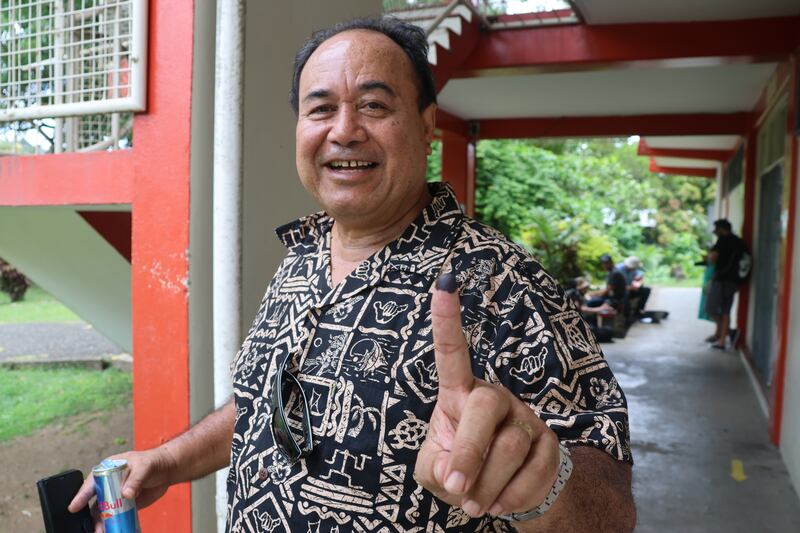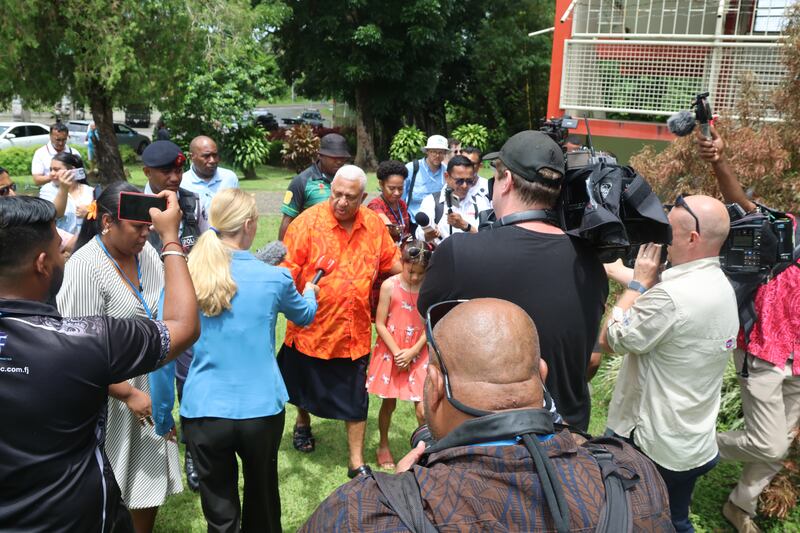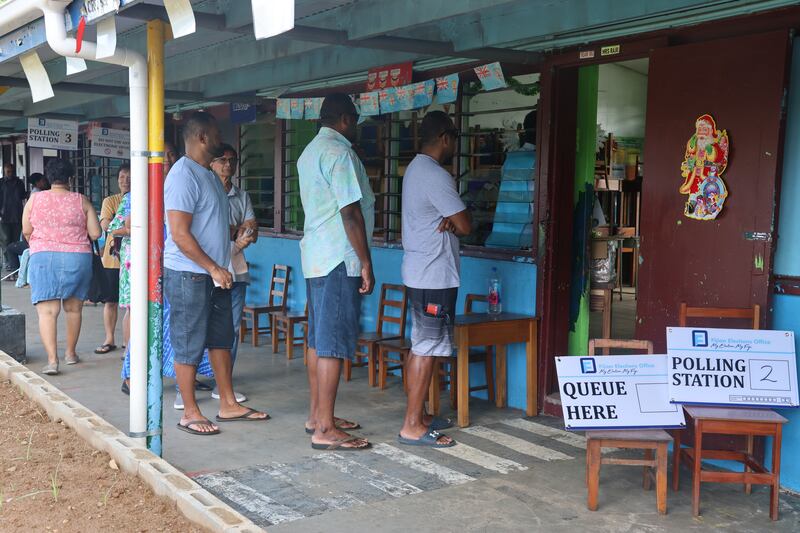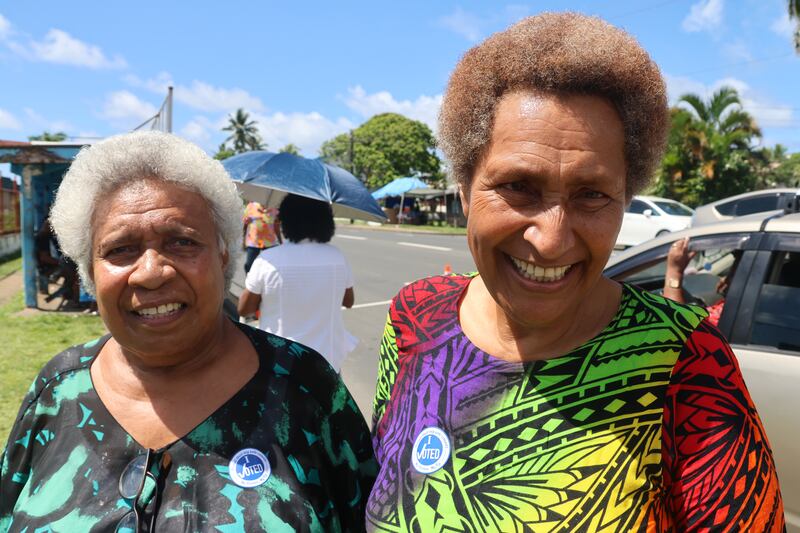Updated at 5:07 p.m. ET on 2022-12-14
Fijians voted Wednesday in an election to decide whether Prime Minister Frank Bainimarama can extend a 16-year hold on power that has brought stability to the Pacific island nation but also entrenched strongman politics.
The election pits the governing his Fiji First Party against the People’s Alliance led by former prime minister Sitiveni Rabuka. Both are former military men who came to power in coups that have defined Fjiian politics since the late 1980s.
Marisa Daurewa Vusonilawe, a teacher, said she sensed a mood for change among Fijians.
“A lot of issues have come up that people thought would be attended to, particularly for the people in the villages, issues like [improving] roads,” she said after voting.
“People have come campaigning, promising from their manifesto and what not, but they have not put it into action,” she said.

Polling stations closed at 6 p.m., which also ended a blackout period since Monday that prohibited campaigning and media coverage of most election issues.
The Fijian Elections Office released updates on provisional results throughout the night until early Thursday morning (local time). With 60% of polling stations counted, the provisional results showed Fiji First having about 46% of votes. The People’s Alliance had nearly 33% and a smaller party allied with it had 9%.
Supervisor of Elections Mohammed Saneem told a press conference that updates would be given on the official vote count and a final tally was expected on Sunday – faster than previous elections. He didn’t say how frequent the updates would be.
The election office’s results app for the public was taken offline for several hours during the night after an interrupted upload of data to it caused a misallocation of votes for some candidates, according to Saneem.
Earlier in the week, an international observer group said there had been no significant irregularities in the early voting held in remote areas. It has about 90 officials monitoring the election.

Bainimarama was in a combative mood when he voted in the capital Suva. Surrounded by journalists, he demanded to know why Australia hadn’t sent an intelligent reporter after being asked if he could accept an election defeat.
Fiji’s military commander, in a speech last week, called on soldiers to respect the election result and “not yield to our poorer selves.”
Like other Pacific island countries, Fiji has been balancing its burgeoning economic relationship with China and its security ties with Australia and the United States.
Mihai Sora, a Pacific analyst at the Lowy Institute, said Fiji’s strong relations with the United States and Australia shouldn’t be changed by the election.
“A potential change in government is not likely to result in a markedly different foreign policy with respect to U.S.-China rivalry in the Pacific,” he said.
Analysts have said it’s possible no party will win an outright majority, requiring a coalition to be formed.

Fiji First’s support dropped to 50% in the 2018 election from about 59% in 2014, which was the first election in eight years after Bainimarama seized power in a 2006 coup.
Freedom House, which promotes civil rights and democracy, says a repressive climate in Fiji eased following the 2014 election. However, the ruling party still frequently interferes with opposition activities and the judiciary is subject to political influence, it says.
A media law has also stifled criticism of the government, but Fiji First’s popularity has been challenged by the economic fallout of the COVID-19 pandemic in tourism-reliant Fiji, high inflation and concern about the government’s legal tactics against critics and opposition politicians.
“Bainimarama faces an uphill battle to secure a third term in power,” William Waqavakatoga, an international relations PhD candidate at the University of Adelaide, said in a commentary published Tuesday.
Fiji has had four coups since independence in 1970, partly a legacy of British colonial policies that restricted the economic activities of indigenous Fijians while bringing tens of thousands of indentured laborers from India in the late 19th century and early 20th century.
The first two coups, in 1987, led by Rabuka, then a lieutenant colonel, highlighted the ethnic and religious divisions that had developed in Fiji over decades. The coups followed the election defeat of a predominantly indigenous Fijian political party.

Fiji, with a population of nearly 1 million, is the second most populous Pacific island nation after Papua New Guinea. Indigenous Fijians are the majority and the proportion of Indian Fijians has dropped to about 38% from 50% in the 1980s because of emigration spurred by the coups.
Waqavakatoga said Fiji First benefited electorally in 2018 from fears among Indian Fijians that a change in government would revive the retributive Fijian ethno-nationalism behind the 1987 coups.
But nationwide problems – such as a quarter of people living in poverty, water supply cuts, power outages and potholes after heavy rains – are now on people’s minds, he said.
“The political climate is very different today, with voters now primarily interested in economic wellbeing,” said Waqavakatoga.
This report has been updated to include information on updates to provisional election results.
